14 start with U start with U

The literary career of Uchida Hyakken (1889–1971) encompassed a wide variety of styles and genres, including fiction, zuihitsu (essays), war diaries, poetry, travelogues, and children’s stories. In discussing his oeuvre, critics have circumscribed Hyakken to a private literary realm detached from the era in which he wrote.
Rachel DiNitto provides a critical corrective by locating in Hyakken’s simple yet powerful literary language a new way to appreciate the various literary reactions to the modernization of the early decades of the twentieth century and a means to open up a literary space of protest, an alternate intellectual response to the era of militarism.
This book takes up Hyakken’s fiction and essays written during Japan’s prewar years to investigate the intersection of his literature with the material and discursive surroundings of the time: a consumer-oriented print culture; the popular entertainment of film; the capitalist and cultural force of an emergent middle class; a planned, yet sprawling metropolis; and the war machine of an expanding Japanese empire. Emerging from this analysis is a writer who relied on the quotidian language of the everyday and the symbols of cultural modernism to counter the harsh realities of modernization and imperialism and to express sentiments contrary to the mainstream ideological rhetoric of the time.
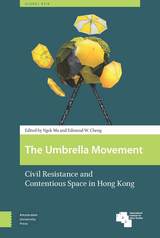
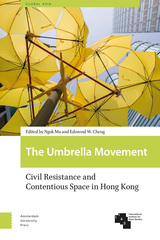
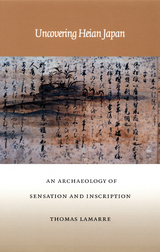
Combining a pathbreaking visual analysis of the calligraphy with which this poetry was transcribed, a more traditional textual analysis, and a review of the politics of the period, LaMarre presents a dramatically new view of Heian poetry and culture. He challenges the assumption of a cohesive “national imagination,” seeing instead an early Japan that is ethnically diverse, territorially porous, and indifferent to linguistic boundaries. Working through the problems posed by institutionalized notions of nationalism, nativism, and modernism, LaMarre rethinks the theories of scholars such as Suzuki Hideo, Yoshimoto Takaaki, and Komatsu Shigemi, in conjunction with theorists such as Derrida, Karatani, Foucault, and Deleuze. Contesting the notion that speech is central to the formation of community, Uncovering Heian Japan focuses instead on the potential centrality of the more figural operations of poetic practice.
Specialists in Japanese history and culture as well as scholars working in other areas of cultural criticism will find that this book enriches their understanding of an early Japan that has exerted so much influence on later concepts of what it means to be Japanese.

Cundill Prize Finalist
An Economist Best Book of the Year
A Financial Times Best Book of the Year
“Superbly original…Breaks new ground by showing how a collective consciousness emerged among revolutionaries.”
—The Economist
“A clearly written, brilliantly researched examination of the people and movements that shaped Asia’s course in the 20th century and continue to influence the continent today.”
—Walter Russell Mead, Wall Street Journal
“The most gripping work of history I have ever read. It is a truly profound meditation on the struggles for freedom that shaped modern Asia…a flat out literary masterpiece.”
—Sunil Amrith, author of Unruly Waters
European empires had not yet reached their zenith when Asian radicals planted the seeds of their destruction. They gained energy and recruits after the Bolshevik Revolution, which sparked visions of a free and radically equal world. Thanks to cheap printing presses and the new possibility of international travel, these utopian revolutionaries built clandestine webs of resistance from London and Paris to Calcutta, Bombay, Hanoi, and Shanghai. Tim Harper takes us into this shadowy world, following the interconnected lives of Asian Marxists, anarchists, and nationalists such as M. N. Roy, Ho Chi Minh, and Tan Malaka.
Underground Asia shows for the first time how these national liberation movements crucially depended on global action and reveals how these insurgencies shape the region to this day.
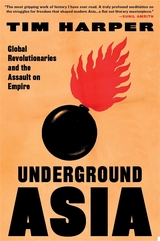
An Economist Best Book of the Year
A Financial Times Best Book of the Year
A major historian tells the dramatic and untold story of the shadowy networks of revolutionaries across Asia who laid the foundations in the early twentieth century for the end of European imperialism on their continent.
This is the epic tale of how modern Asia emerged out of conflict between imperial powers and a global network of revolutionaries in the turbulent early decades of the twentieth century.
In 1900, European empires had not yet reached their territorial zenith. But a new generation of Asian radicals had already planted the seeds of their destruction. They gained new energy and recruits after the First World War and especially the Bolshevik Revolution, which sparked utopian visions of a free and communist world order led by the peoples of Asia. Aided by the new technologies of cheap printing presses and international travel, they built clandestine webs of resistance from imperial capitals to the front lines of insurgency that stretched from Calcutta and Bombay to Batavia, Hanoi, and Shanghai. Tim Harper takes us into the heart of this shadowy world by following the interconnected lives of the most remarkable of these Marxists, anarchists, and nationalists, including the Bengali radical M. N. Roy, the iconic Vietnamese leader Ho Chi Minh, and the enigmatic Indonesian communist Tan Malaka. He recreates the extraordinary milieu of stowaways, false identities, secret codes, cheap firearms, and conspiracies in which they worked. He shows how they fought with subterfuge, violence, and persuasion, all the while struggling to stay one step ahead of imperial authorities.
Underground Asia shows for the first time how Asia’s national liberation movements crucially depended on global action. And it reveals how the consequences of the revolutionaries’ struggle, for better or worse, shape Asia’s destiny to this day.
Previous praise for Tim Harper
Praise for Forgotten Wars:
“[A] compelling book.”—Philip Delves Broughton, Wall Street Journal
“Lucid…majestic.”—Peter Preston, The Observer
“Authoritative.”—Pankaj Mishra, New Yorker
Praise for Forgotten Armies:
“Panoramic… Vivid.”—Benjamin Schwarz, New York Times Book Review
“A spectacular book.”—Martin Jacques, The Guardian

Yanagita Kunio (1875–1962) was a public intellectual who played a pivotal role in shaping modern Japan’s cultural identity. A self-taught folk scholar and elite bureaucrat, he promoted folk studies in Japan. So extensive was his role that he has been compared with the fabled Grimm Brothers of Germany and the great British folklorist James G. Frazer (1854–1941), author of The Golden Bough. This monograph is only the second book-length English-language examination of Yanagita, and it is the first analysis that moves beyond a biographical account of his pioneering work in folk studies.
An eccentric but insightful critic of Japan’s rush to modernize, Yanagita offers a compelling array of rebuttals to mainstream social and political trends in his carefully crafted writings. Through a close reading of Yanagita’s interdisciplinary texts, which comment on a wide range of key cultural issues that characterized the first half of Japan’s twentieth century, Melek Ortabasi seeks to reevaluate the historical significance of his work. Ortabasi’s inquiry simultaneously exposes, discursively, some of the fundamental assumptions we embrace about modernity and national identity in Japan and elsewhere.
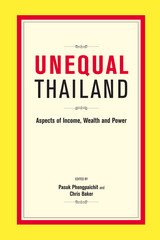
The contributors to this important study—Thai scholars, reformers and civil servants—shed light on the many dimensions of inequality in Thailand, looking beyond simple income measures to consider land ownership, education, finance, business structures and politics. The contributors propose a series of reforms in taxation, spending and institutional reform that can address growing inequality.
Inequality is among the biggest threats to social stability in Southeast Asia, and this close study of a key Southeast Asian country will be relevant to regional policy-makers, economists and business decision-makers, as well as students of oligarchy and inequality more generally.

The Tale of Genji (ca. 1008), by noblewoman Murasaki Shikibu, is known for its sophisticated renderings of fictional characters’ minds and its critical perspectives on the lives of the aristocracy of eleventh-century Japan. Unreal Houses radically rethinks the Genji by focusing on the figure of the house. Edith Sarra examines the narrative’s fictionalized images of aristocratic mansions and its representation of the people who inhabit them, exploring how key characters in the Genji think about houses in both the architectural and genealogical sense of the word.
Through close readings of the Genji and other Heian narratives, Unreal Houses elucidates the literary fabrication of social, architectural, and affective spaces and shows how the figure of the house contributes to the structuring of narrative sequences and the expression of relational nuances among fictional characters. Combining literary analysis with the history of gender, marriage, and the built environment, Sarra opens new perspectives on the architectonics of the Genji and the feminine milieu that midwifed what some have called the world’s first novel.
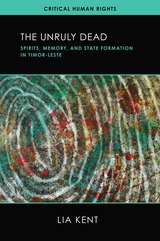
With generous, careful ethnography and incisive analysis, Kent challenges comfortable, linear narratives of transitional justice and argues that this memory work is reshaping the East Timorese social and political order—a process in which the dead are active, and sometimes disruptive, participants. Community ties and even the landscape itself are imbued with their presence and demands, and the horrific scale of mass death in recent times—at least a third of the population perished during the Indonesian occupation—means Timor-Leste’s dead have real, significant power in the country’s efforts to remember, recover, and reestablish itself.
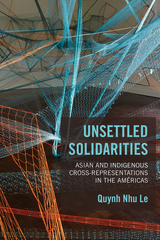
Unsettled Solidarities examines contemporary Asian and Indigenous cross-representations within different settler states in the Américas. Quynh Nhu Le looks at literary works by both groups alongside public apologies, interviews, and hemispheric race theories to trace cross-community tensions and possibilities for solidarities amidst the uneven imposition of racialization and settler colonization.
Contrasting texts such as Maxine Hong Kingston’s China Men with Gerald Vizenor’s Hiroshima Bugi, and Karen Tei Yamashita’s Through the Arc of the Rain Forest with Leslie Marmon Silko’s Almanac of the Dead, among others, Le reveals how settler colonialism persists through the liberal ideological structuring or incorporation of critical and political resistance. She illuminates the tense collisions of Asian and Indigenous movements from the heroic/warrior traditions, reparations and redress, and transnational/cross-racial mobilization against global capital to mixed-race narratives.
Reading these tensions as formed through the unstable grammatical and emotional economies of liberalism, Le frames settler colonialism as a process that is invoked and yet ruptured by Asian and Indigenous peoples. In analyzing Asian/Indigenous crossings in the United States, Canada, Mexico, and Brazil, Unsettled Solidarities conveys the logics and instabilities that connect these settler empires.
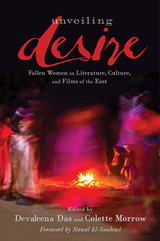
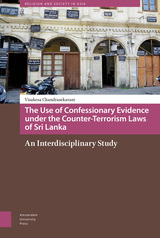

The pioneering writer Higuchi Ichiyō (1872–1896) has been described as “the last woman of old Japan,” a consummate stylist of classical prose, whose command of the linguistic and rhetorical riches of the premodern tradition might suggest that her writings are relics of the past with no concern for the problems of modern life.
Timothy Van Compernolle investigates the social dimensions of Ichiyō’s artistic imagination and argues that she creatively reworked the Japanese literary tradition in order to understand, confront, and critique the emerging modernity of the Meiji period. For Ichiyō, the classical canon was a reservoir of tropes and paradigms that could be reshaped and renewed as a way to explore the sociopolitical transformations of the 1890s and cast light upon the human costs of modernization.
Drawing critical momentum from the dialogical theory of Mikhail Bakhtin, the author explores in five of Ichiyō’s best known stories how traditional rhetoric and literary devices are dialogically engaged with discourses associated with modernity within the pages of Ichiyō’s narratives. In its close, sensitive readings of Ichiyō’s oeuvre, The Uses of Memory not only complicates the scholarly discussion of her position in the Japanese literary canon, but also broaches larger theoretical issues.
READERS
Browse our collection.
PUBLISHERS
See BiblioVault's publisher services.
STUDENT SERVICES
Files for college accessibility offices.
UChicago Accessibility Resources
home | accessibility | search | about | contact us
BiblioVault ® 2001 - 2024
The University of Chicago Press









